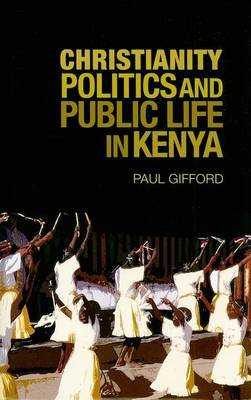Columbia/Hurst
1 total work
Since achieving independence in 1963, Kenya has existed as a classic, patronage state, ruled with an iron fist by a corrupt political elite. Kenya has also become nearly 80 percent Christian, and in this book, Paul Gifford explores the country's diverse churches and their role in shaping public and political life. During the 1990s, Kenya's Catholic and Protestant churches challenged the state's dysfunctional one-party rule; yet today these organizations are interested more in increasing the numbers of their missionaries and enlarging their global networks than in protesting the current regime. Gifford follows this historical shift, noting the specific theology of Kenya's churches, which deeply respect African culture as a non-negotiable component of African Christianity. He also covers the rich variety of Kenya's churches and their individual efforts to preserve Kenyan cultures. Countless Pentecostal churches have also emerged in recent decades, ranging from affluent middle-class institutions to shelters for the poor. Nearly all emphasize power, success, achievement, and prosperity, priorities that privilege modernity over tradition.
Gifford discusses the influence of these churches on domestic media; their crusades, structure, and use of scripture; and their complex economics, which help to explain the thorough domestication of Kenyan Christianity in recent decades, reinforcing the country's corrupt political practices.
Gifford discusses the influence of these churches on domestic media; their crusades, structure, and use of scripture; and their complex economics, which help to explain the thorough domestication of Kenyan Christianity in recent decades, reinforcing the country's corrupt political practices.
